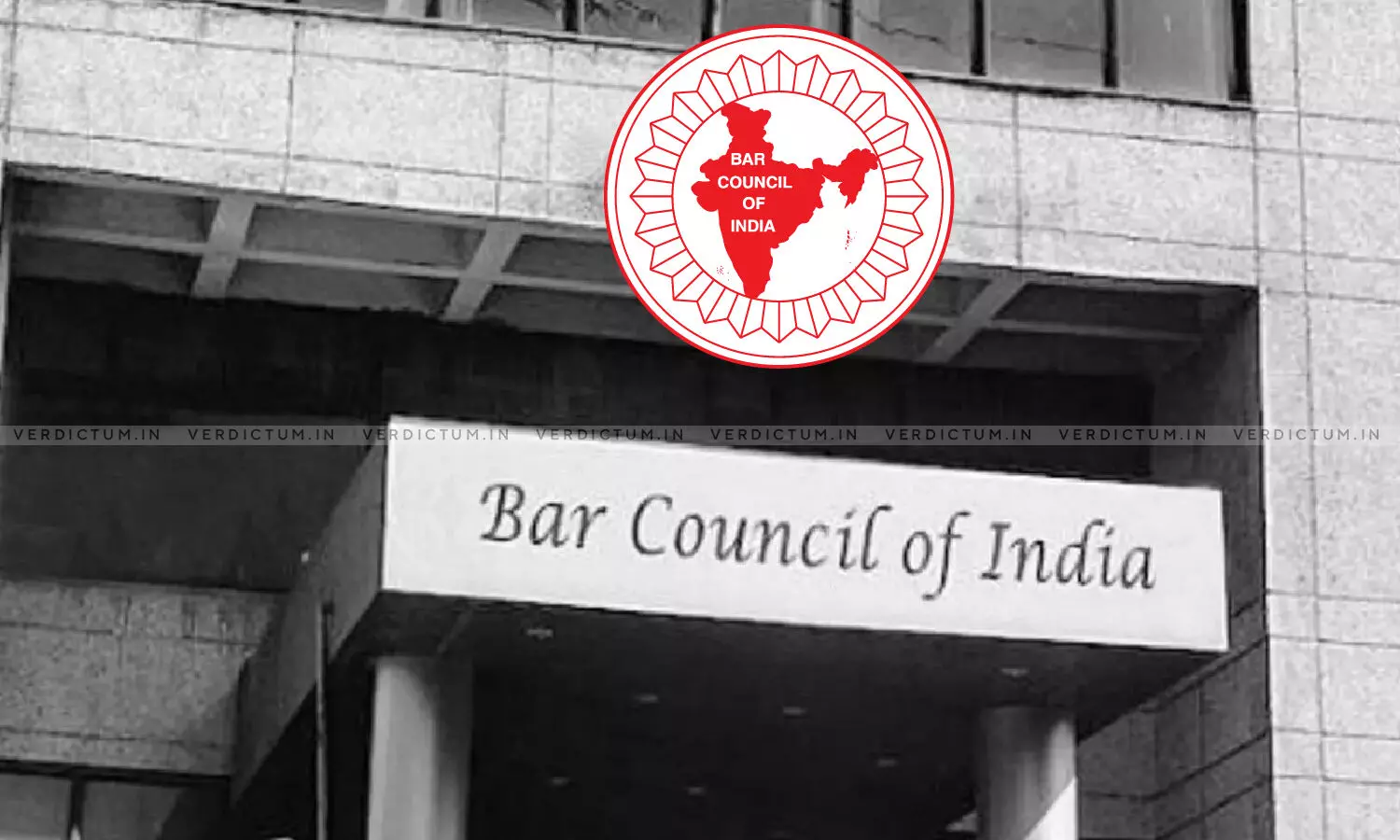
BCI Backs PIL Seeking Directions To Conduct CLAT-2024 In Regional Languages
 |
|The Bar Council of India has recently filed an affidavit before the Delhi High Court supporting the Public Interest Litigation (PIL) filed seeking direction to the Consortium of National Law Universities to conduct the CLAT (UG)- 2024 (Common Law Admission Test), scheduled, to be held in December 2023 in all regional languages given in the Eight schedule of the Constitution of India.
In the affidavit filed through the Joint Secretary of the Bar Council of India, it has been stated that "The Bar Council of India supports the issue raised by Petitioner for conducting the CLAT examination in languages other than English as the same will give opportunities to more citizens of the country to appear in the exam and pursue law as a career."
The affidavit further highlights that the All India Bar Examination conducted by the Bar Council of India on February 5, 2023, was declared to be conducted in 23 languages. The BCI informed the Delhi High Court that the 23 languages in which the AIBE is conducted are: (1) English, (2) Hindi, (3) Assamesse, (4) Bengali, (5) Gujarati, (6) Kannada, (7) Kashmiri, (8) Konkani, (9) Malayalam, (10) Manipuri, (11) Marathi, (12) Nepali, (13) Oriya, (14) Punjabi, (15) Sanskrit, (16) Sindhi, (17) Tamil, (18) Telugu, (19) Urdu, (20) Bodo, (21) Samthali, (22) Maithali and (23) Dogri.
It has also been submitted in the affidavit that as per the Legal Education Rules 2008 made by the BCI in consultation with Universities and State Bar Councils, Clause 1 Schedule II of the Rules 2008 mandates that English shall be the medium of instruction in both the integrated five years and three-year law course. However, it was left open to the University/Centre of Legal Education to allow in full or in part instruction in any language other than English.
Continuing, the BCI states that in the Rule itself, it is further mentioned that if the medium of instruction is allowed by the University/Centre of Legal Education other than English then the students will have to take English as a compulsory paper. The relevant Clause 1 Schedule II of the Legal Education Rule 2008 says "Medium of instruction: English shall be the medium of instruction in both the integrated five year and three year courses. However if any University and its any CLE allows in full or in part instruction in any language other than English or allows the students to answer the test papers in the periodical and final semester tests in any regional language other than English, the students have to take English as a compulsory paper."
Recently, the Delhi High Court was informed by the Consortium of National Law Universities that an Advisory Board has been constituted to, inter alia, discuss the issue of conducting CLAT in the scheduled language option and advise the Governing Body and Executive Committee of the college who participate in the CLAT examination.
The Court had remarked that if the NEET and JEE exams are conducted in multiple languages, the Court sees no problem as to why the CLAT exam cannot be conducted in the regional languages along with English.
In the PIL filed by Sudhanshu Pathak, through the Advocates Akash Vajpai and Sakshi Raghav, it has been submitted that the present CLAT (UG) demands a high degree of proficiency in English rendering a disadvantage to students from non-English medium backgrounds. The Petitioner has sought direction on the Respondent No. 1- Consortium of National Law Universities to conduct "CLAT (UG)- 2024 (Common Law Admission Test), scheduled, to be held in December 2023 not only in English language but in all other regional languages given in the Eight schedule of the Constitution of India".
It is submitted in the petition that as per a 2013-14 year survey, 96.77% of the surveyed students came from English medium backgrounds which indicates that proficiency in the English language continues to be a major factor for gaining admission to a top NLU in the country and that CLAT (UG) discriminates against and fails to provide a level playing field to the students belonging to educational backgrounds rooted in regional languages.
Cause Title: Sudhanshu Pathak v. Consortium of National Law Universities & Ors [W.P.(C) 3132/2023]